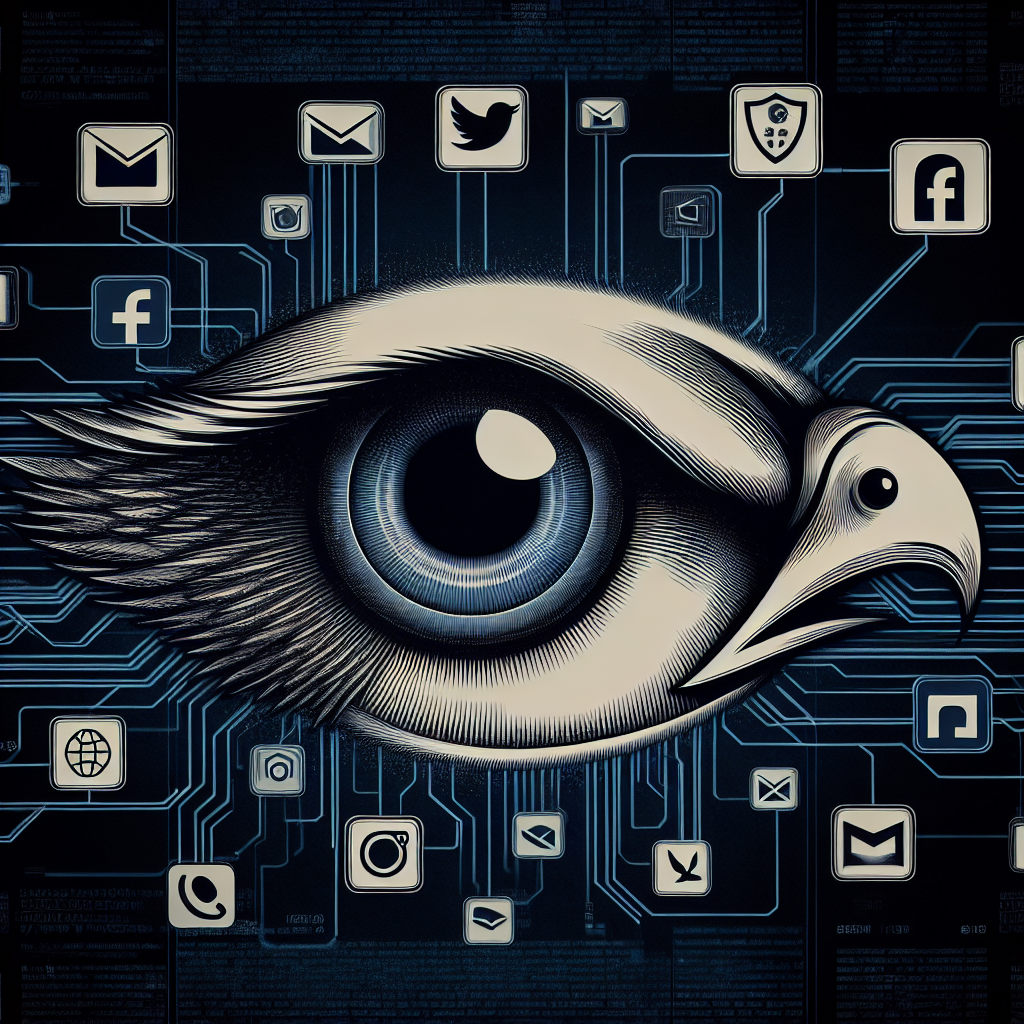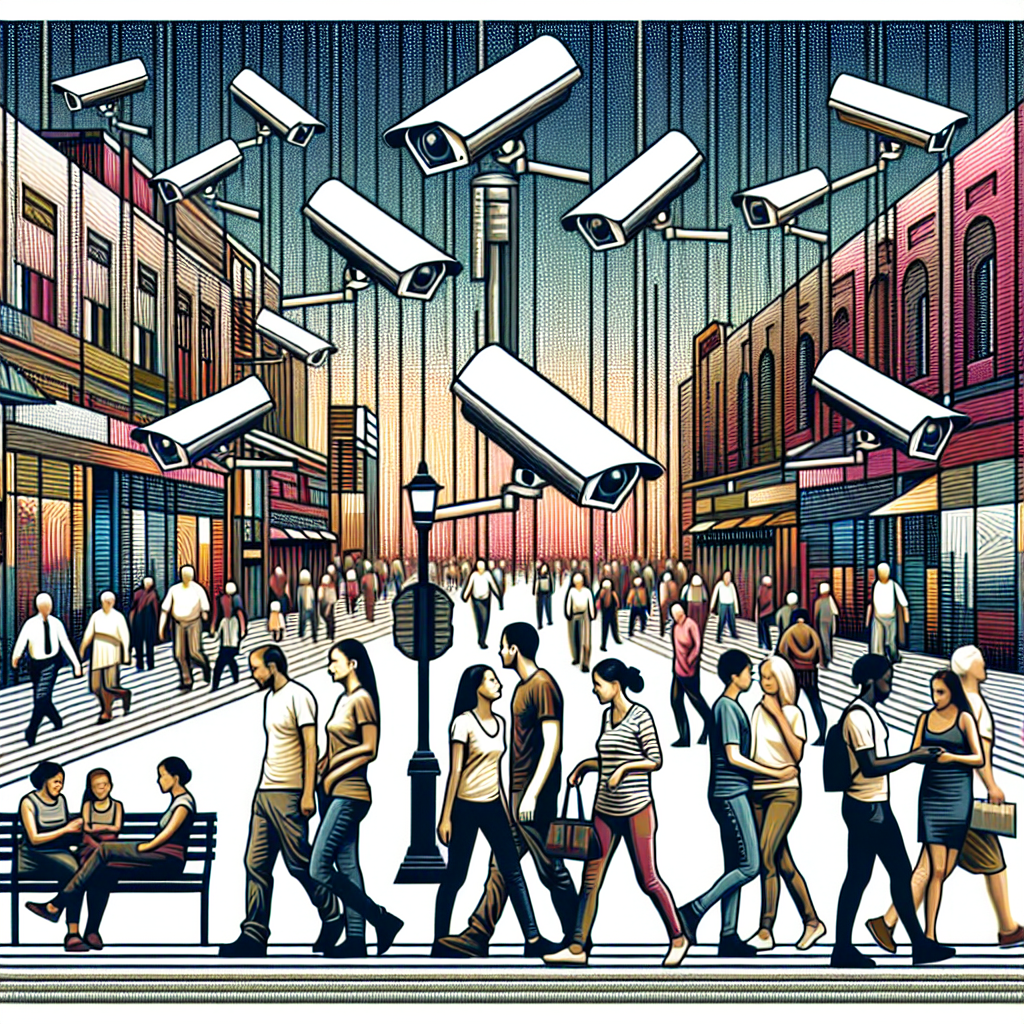The Role of Social Media in Government Surveillance Efforts
Introduction to Social Media Surveillance
Social media has transformed communication and information dissemination across the globe. With billions of users actively engaging on platforms like Facebook, Twitter, Instagram, and TikTok, governments increasingly monitor these networks to gather data for surveillance purposes. This article explores how social media platforms become tools for surveillance, the implications for privacy rights, and the ethical considerations surrounding government monitoring efforts.
How Governments Utilize Social Media Data
1. Data Collection Techniques
Governments utilize a variety of methods to collect data from social media platforms. They often deploy automated software known as “scrapers” to collect public posts, comments, and interactions. These tools can aggregate vast amounts of data within seconds, providing authorities with access to real-time information about public sentiments, criminal activity, and potential threats.
2. Social Media Analytics Tools
Advanced analytics applications are often employed to filter and analyze the data collected from social media platforms. These tools use algorithms to identify trends, anomalous behavior, and network patterns. For instance, sentiment analysis can discern public sentiment regarding political issues or events—a valuable asset for government agencies seeking to understand public opinion.
3. Geolocation Data Monitoring
Many social media networks allow users to share their location. Authorities can track where individuals post from, providing insights into geographic patterns associated with protests, gatherings, or criminal activities. This geolocation data is particularly useful during emergencies or security incidents to assess real-time developments.
Case Studies of Social Media Surveillance
1. The Arab Spring
The Arab Spring is a notable example of how social media influenced governmental responses to civil unrest. Countries like Egypt and Tunisia witnessed rapid mobilization facilitated by platforms such as Facebook and Twitter. In response, governments enhanced their surveillance measures, monitoring communications to identify key activists and prevent protests. While this effectively countered some uprisings, it highlighted the delicate balance between maintaining order and respecting civil liberties.
2. The United States Post-9/11
After the September 11 attacks, the U.S. government significantly intensified its surveillance efforts, using social media as a critical component of its strategy to prevent terrorism. Programs like the NSA’s PRISM initiative permitted organizations to harvest data directly from internet service providers and social media platforms. Such initiatives raised public concern about overreach and the erosion of privacy rights, sparking debates about the need for regulatory frameworks.
The Impact of Social Media Surveillance on Civil Liberties
1. Erosion of Privacy
As governments increasingly surveil social media, the line between public and private life blurs. Users often succumb to self-censorship, fearing that their online expressions could lead to unwanted government scrutiny. This chilling effect undermines the fundamental rights to free speech and expression guaranteed in many democracies.
2. Targeting Marginalized Groups
Government surveillance often disproportionately affects marginalized communities, including activists, minority groups, and political dissidents. The collection of social media data can disproportionately target these groups for monitoring, leading to stigmatization and violation of their rights. Arrests and detainments can arise from even non-threatening posts, as authorities misinterpret context or intent.
3. Misuse and Abuse of Data
Government agencies wield considerable power through access to social media data, which raises significant concerns regarding misuse. Instances where data has been used for surveillance rather than public safety underscore the potential for abuse. This raises the question of accountability and the need for stringent regulations overseeing how surveillance data is handled.
Legal Frameworks and Guidelines
1. Existing Regulations
Various countries have enacted laws governing surveillance practices. The U.S. operates under the Foreign Intelligence Surveillance Act (FISA) and the USA PATRIOT Act, which allow for data collection under specific circumstances. In Europe, the General Data Protection Regulation (GDPR) provides guidelines to protect personal information, influencing how social media companies manage user data.
2. The Need for Enhanced Oversight
Given the evolving landscape of social media and surveillance, there is a pressing need for robust oversight mechanisms. Advocacy groups call for clearer legal frameworks that delineate the boundaries of government surveillance. These regulations should ensure transparency, enable public accountability, and protect individual rights against unjustified monitoring.
Ethical Considerations in Social Media Surveillance
1. Balancing Security and Privacy
While governments argue that surveillance enhances national security, it is crucial to strike a balance between security needs and privacy rights. Ethical considerations should guide how data is collected and used, ensuring that individuals’ freedoms are not compromised in the name of safety.
2. Role of Social Media Companies
Social media companies have a significant responsibility in shaping the narrative around surveillance. They are positioned to advocate for user privacy while engaging with governments on issues of national security. Transparency in data-sharing practices and policies regarding user consent is essential in addressing public concerns over privacy.
3. Public Awareness and Advocacy
Public understanding of social media surveillance dynamics remains limited. Increasing awareness through educational campaigns can empower individuals to make informed choices regarding their online presence. Advocacy for stronger privacy protections and ethical surveillance practices is vital in fostering a culture that values both safety and individual rights.
Future of Social Media Surveillance
1. Technological Advancements
As technology evolves, the capabilities of government surveillance will intensify. The integration of artificial intelligence (AI) and machine learning in data analysis will improve the efficiency and effectiveness of surveillance efforts. However, this requires equally advanced ethical frameworks to manage emerging challenges.
2. Global Perspectives
International cooperation will likely shape the future of surveillance given the borderless nature of the internet. Countries must collaborate on developing shared standards for surveillance technology and its ethical implications, addressing the concerns of privacy rights on a global scale.
3. User Empowerment
Social media platforms must empower their users by implementing privacy features, educating them about settings, and encouraging responsible online behavior. Future platforms may integrate user consent and customizable privacy options to mitigate the impact of government surveillance while preserving users’ rights.
Conclusion
The intersection of social media and government surveillance presents complex implications for society. As governments continue to leverage social media data for surveillance efforts, the discussions surrounding ethical practices, legal frameworks, and the protection of individual rights need to remain at the forefront. Navigating this landscape demands continuous dialogue and proactive measures to uphold democratic principles and civil liberties.












Leave a Reply